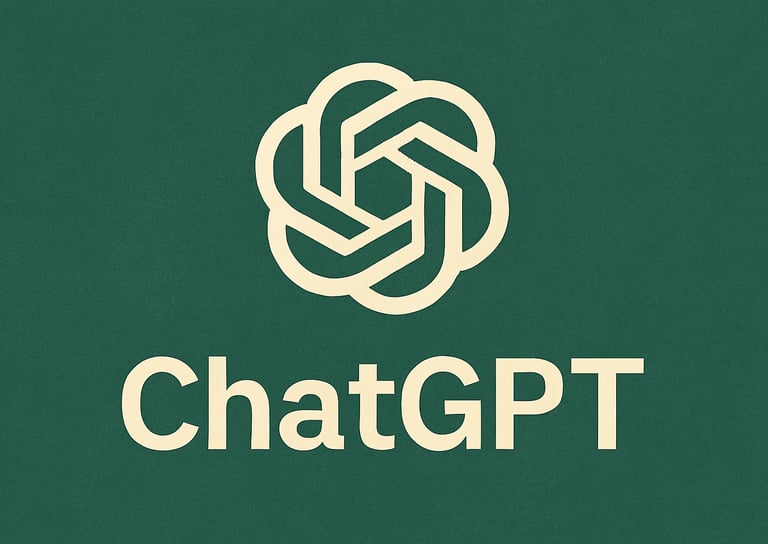Stay updated on what is trending in health. Discover tips and resources for a healthier, balanced life.
ChatGPT and Medical Advice: How Blind Trust in AI Can Turn Toxic
A man hospitalized with bromide poisoning after following ChatGPT’s dietary advice. A case study in Annals of Internal Medicine warns of AI health risks; ChatGPT and Medical Advice:
NEWS
Dr. S. Ali
8/14/20252 min read


An article published this week in the Annals of Internal Medicine, highlights a concerning case, where a man reportedly followed dietary advice from ChatGPT and ended up hospitalized due to bromide poisoning (a condition called bromism).
This incident raises important questions about the reliability of AI-generated health advice and the risks of self-diagnosis or treatment based on unverified sources.
Summary of What Happened
A 60-year-old man, concerned about the health risks of table salt (sodium chloride), asked ChatGPT for a substitute. The AI suggested sodium bromide, a chemical commonly used for cleaning—not cooking.
Acting on this information, he consumed sodium bromide daily for three months. The substance built up in his system, leading to bromism, a condition once common in the early 20th century.
He experienced hallucinations, paranoia, insomnia, rash, and extreme thirst, ultimately resulting in a hospital stay. Standard lab tests misinterpreted high bromide as elevated chloride.
After treatment—including fluids, electrolytes, and psychiatric care—he recovered within about three weeks.
Key Points from the Incident:
1. Misinformation Risk:
The man allegedly asked ChatGPT for a "salt-free diet," and the AI tool may have suggested alternatives containing bromide salts (like potassium bromide or sodium bromide), which are toxic in high doses.
2. AI Limitations:
While AI like ChatGPT can provide general information, it is not a medical professional and lacks the ability to assess individual health risks, drug interactions, or toxicology nuances.
3. User Responsibility:
Relying solely on AI for critical health decisions without consulting a doctor or verifying information with trusted sources can be dangerous. Users should critically evaluate AI suggestions, especially for health-related matters, and cross-check with authoritative sources (e.g., doctors, peer-reviewed studies).
Why It Matters
AI is a tool, not a substitute for professional medical advice
AI chatbots are designed to assist with general knowledge, not replace medical expertise. Even though ChatGPT and similar tools can provide information, they aren't qualified to replace a healthcare provider’s judgment. This case highlights how easily inaccurate guidance can become dangerous.Context is critical—and AI lacks it
The AI’s suggestion of substituting bromide for chloride lacked essential context and health warnings. It didn’t ask why the advice was sought or show concern—behaviors a qualified medical professional would show.The risk of decontextualized or outdated information
Sodium bromide's use for sedation dates back decades and is no longer safe for human consumption. This is a reminder that AI can present facts that are technically correct but dangerously misleading.OpenAI’s response is a step in the right direction
OpenAI reiterated that ChatGPT is not intended for medical diagnosis or treatment and has since enhanced health-related safety mechanisms, especially with GPT-5. But this case shows there's still a long way to go.Ethical and Safety Concerns
This case underscores the need for clearer warnings, better safeguards, and improved accuracy in AI-generated health advice. Developers (like OpenAI) may need to reinforce restrictions on medical recommendations.
The Bigger Picture:
This incident could prompt stricter regulations on AI health advice, similar to how search engines like Google display disclaimers for medical queries. It also highlights the broader challenge of balancing AI utility with safety in sensitive domains.
Always prioritize expert advice over AI suggestions for health matters.
Source:
https://www.acpjournals.org/doi/10.7326/aimcc.2024.1260
Pulse Your Health
Empowering you to achieve your health goals.
Contact
© 2026. All rights reserved.
Disclaimer: The content on this website is for informational purposes only and is not medical advice. Always seek the advice of your physician or other suitably qualified healthcare professional for diagnosis, treatment and your health related needs.
